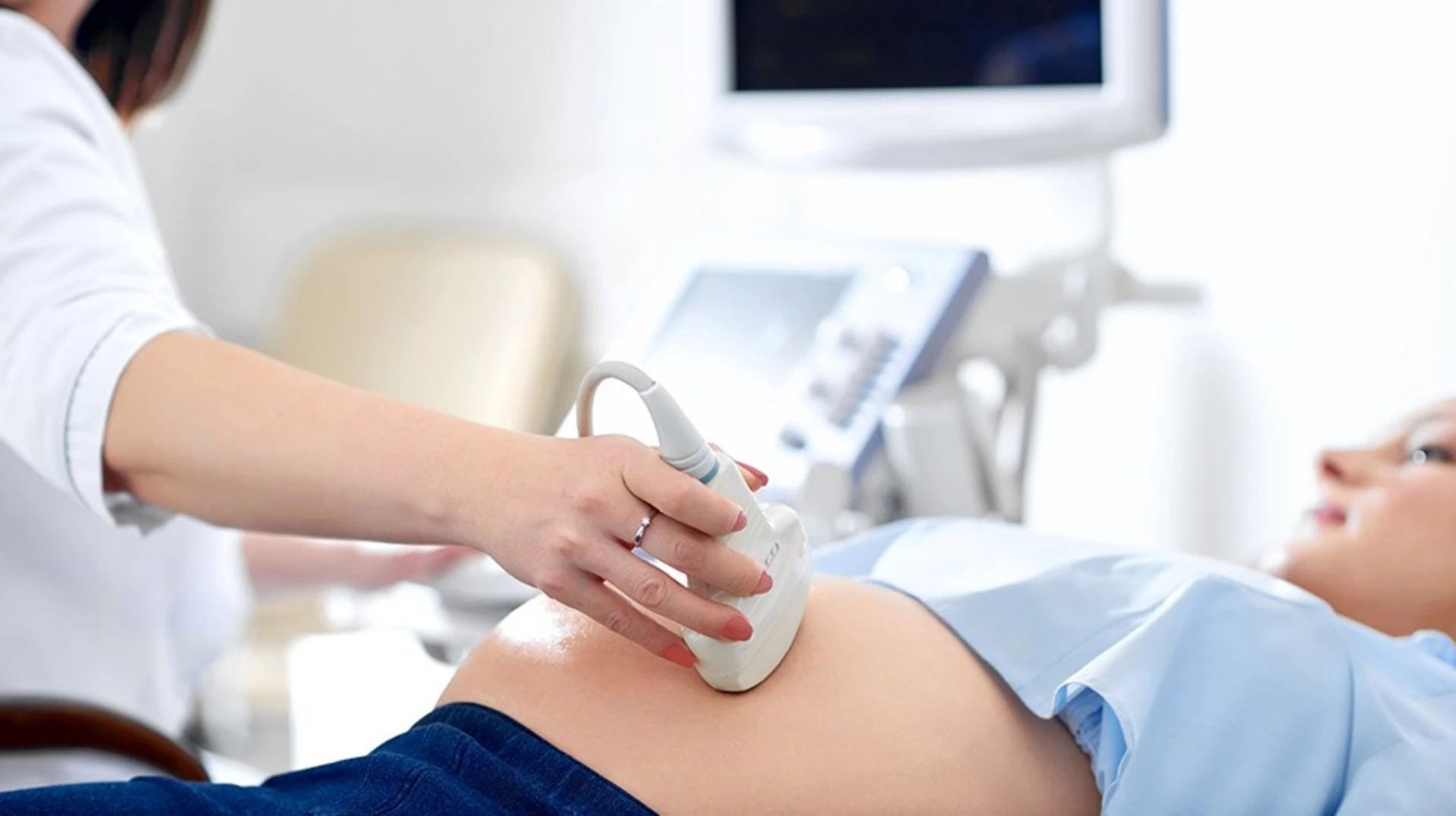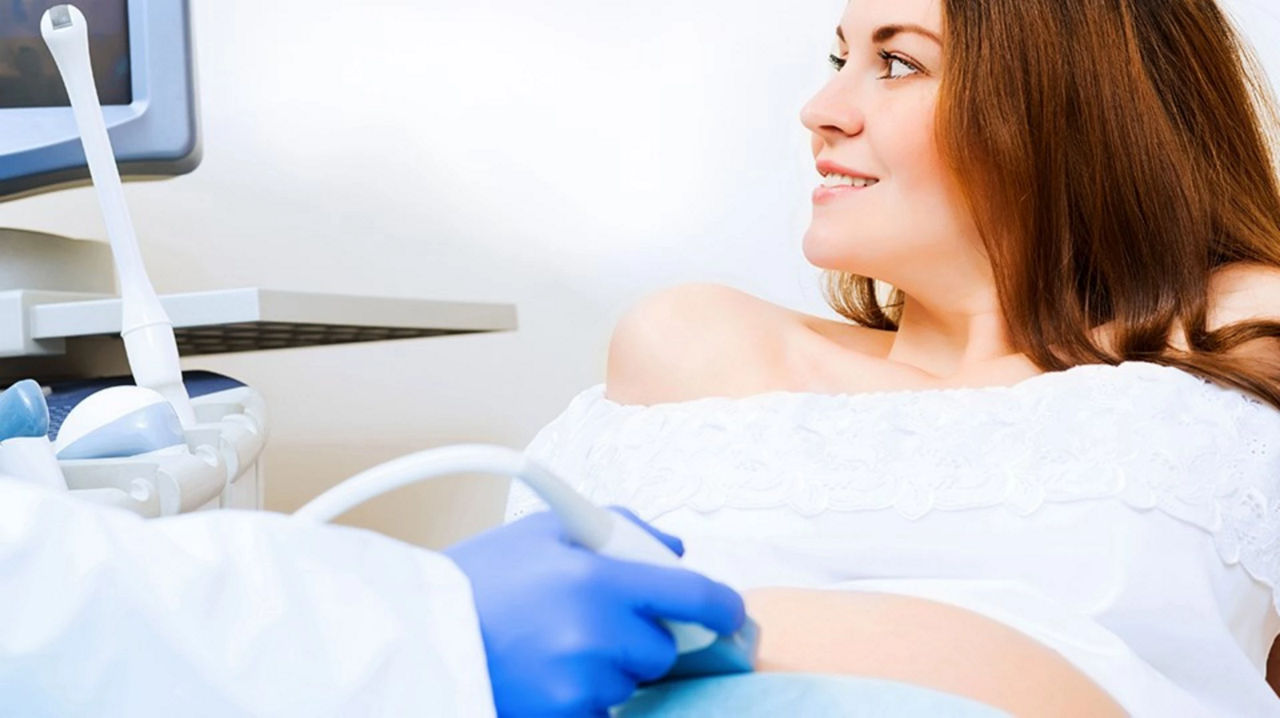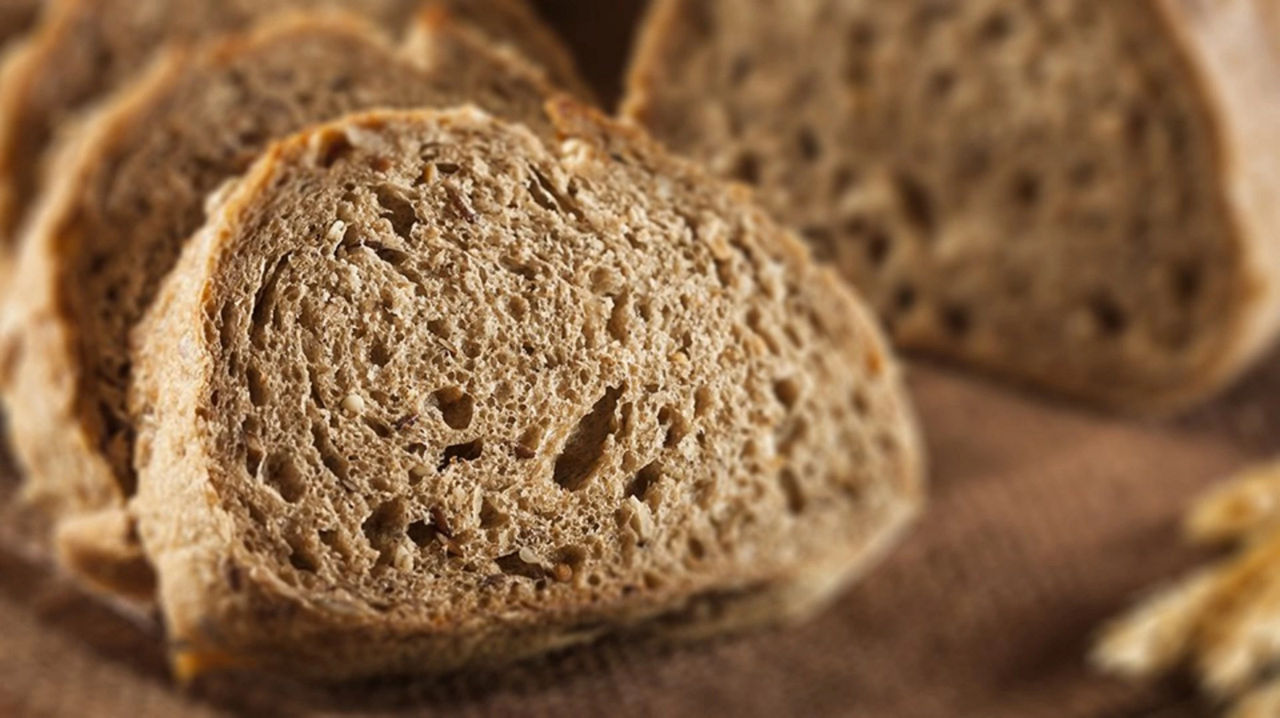An ultrasound scan bounces sound waves back and forth to build up a simple black and white picture of your baby as it grows in the womb. It’s a painless procedure with no known side-effects for mum or baby.
Baby scans and pregnancy ultrasounds
Summary
Your first pregnancy scan can be an exciting yet nerve-wracking experience. It offers the first tangible signs of what’s going on inside and it’s the closest you’ll come to meeting your baby until they’re delivered into your arms. Learn about why scans are offered, and what to expect during a typical ultrasound scan.

What is an ultrasound scan?
Your routine pregnancy scans
As part of the HSE pregnancy care program you will be offered two scans during your pregnancy. The first scan, also known as the dating scan, will take place before your 15th week of pregnancy, (typically around 12 weeks). The second pregnancy scan, also known as the fetal anatomy or anomaly scan will take place anytime between your 18th and 22nd week.
Early pregnancy scan
If you are experiencing pain or bleeding, have had a previous miscarriage or an ectopic pregnancy, you may be invited to have an early scan between six and ten weeks. This is not the same as an ultrasound scan as your baby will be very small at this stage. During this scan a probe will be inserted into your vagina to gain a clearer picture of developments and identify a heartbeat. Although more invasive than an ultrasound, it is a simple and pain-free procedure. Your medical team will be on hand to give you plenty of support and reassurance throughout.
Growth scan
You may be invited to have a third ‘growth’ scan around 32 weeks. This scan is not required for all pregnancies, but it is sometimes offered as a precaution to check your baby’s growth and position in the final few weeks.
There are no known risks to mother or baby of having an ultrasound scan.
Your baby scan questions answered
Where are scans carried out?
Pregnancy scans are usually carried out in a maternity unit by specially trained radiographers or sonographers, midwives or obstetricians. Your first scan appointment will be triggered when you notify your GP of your pregnancy
How many baby scans do I have?
You will usually have two ultrasound scans as part of your pregnancy. Additional scans may be requested by your midwife. The first scan is sometimes called the ‘dating’ scan. The second scan is sometimes called an ‘anomaly’ scan.
You may choose to pay for extra scans during your pregnancy, such as an early scan or if you’ve had a previous pregnancy loss or are concerned about miscarriage. You will need to book these scans yourself. Your GP can advise you on where to get these private pregnancy scans in your area.
What happens in a pregnancy scan?
You’ll be asked to lie on the bed and pull your clothing up or down to reveal your tummy. The lights will be dimmed to enable the sonographer to get a good view of the screen. The sonographer will spread gel onto your bump to allow the probe to move freely, before taking screenshots of ultrasound images and recording measurements on their computer.
When can I find out if it’s a boy or a girl?
During your anatomy scan the sonographer may also be able to identify your baby’s gender. Your sonographer will usually ask you first, but if you’d prefer not to know make it clear at the start of your scan. Bear in mind that their prediction cannot be 100% accurate.
How long do baby scans take?
The ultrasound pregnancy scan typically takes 20 to 30 minutes to complete2, depending on a number of factors. A wriggly baby can be trickier to measure and may require several attempts to take measurements to ensure accuracy.
What are the risks of baby scans?
There are no known risks to mother or baby of having an ultrasound scan2.
How much do baby scans cost?
The two scans that you have through the HSE are free.
The HSE provide 2D scans, but it is possible to pay for 3D or 4D baby scans through private services. These types of scans will show clearer and more vivid representations of your baby, but they are not essential.
What time off work can my partner and I have for scan appointments?
The Government advice for the rights of pregnant women and their partners with respect to leave from employment for ante-natal appointments is as follows:
Employers must give pregnant employees time off for antenatal care and pay their normal rate for this time off. The father or pregnant woman’s partner has the right to unpaid time off work to go to 2 antenatal appointments.
Remember, the definition of ante-natal appointments is not limited to pregnancy scans and medical appointments; it could also include antenatal or parenting classes if they’ve been recommended by a doctor or midwife.
Related articles
Read more

Get in touch with our Careline experts
Our nutritionists and feeding advisors are always on hand to talk about feeding your baby. So if you have a question, just get in touch





